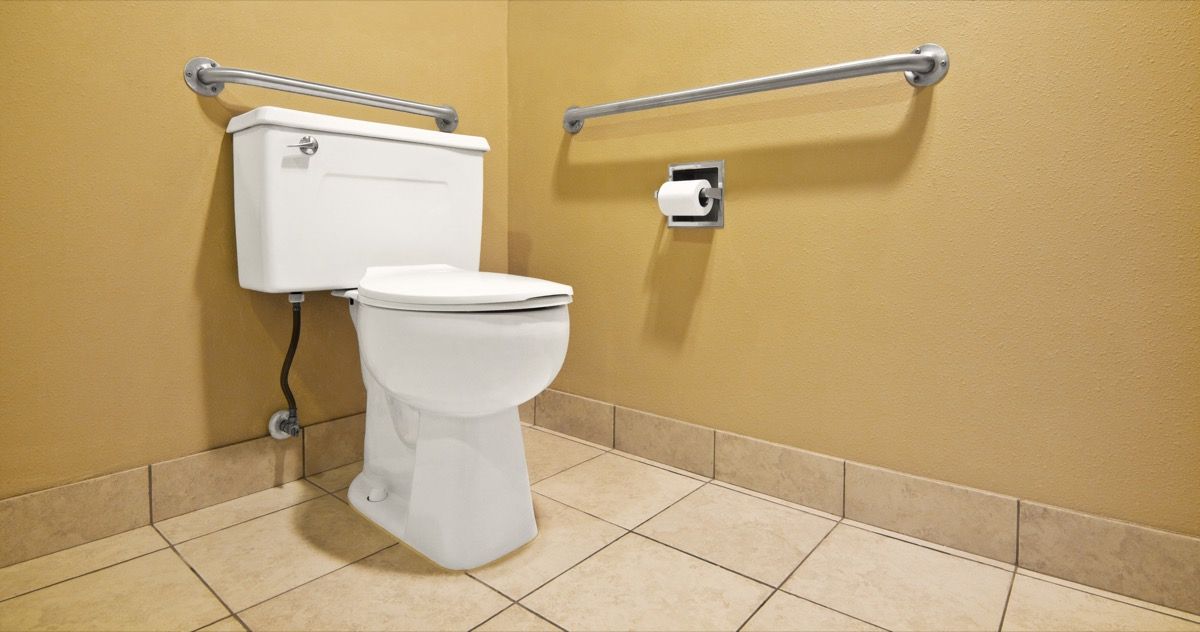This poses a particular challenge in public restrooms, where you’re likely to encounter strangers’ germs, and there are rarely any toilet lids to protect you. Thankfully, some experts say there’s reason to believe that this phenomenon might be less risky than initially thought. Amesh A. Adalja, MD, senior scholar at the Johns Hopkins Center for Health Security, recently told Yahoo News that while there could technically be a spread of viruses or bacteria from another person, it’s not something he would “spend a lot of time worrying about.” For one, it has not been linked to the spread of any particular disease in the past, and as we all know, toilet bowls are ubiquitously rife with germs. Beyond this, Adalja points out that while some germs may land on shared-touch surfaces, simply washing your hands should greatly reduce your risk of contamination. For those concerned about other flushing toilets in adjoining stalls, Adalja offered some comfort there, too. “It would have to be a pretty powerful plume to be able to go up, above a partition, and then come down on you,” he told Yahoo News. RELATED: For more up-to-date information, sign up for our daily newsletter. While making a habit of closing the toilet lid before flushing is one more tool in our arsenal against transmission, it seems there’s less reason to panic than initially thought. In public restrooms, choosing a stall that wasn’t just used by someone else, and washing your hands thoroughly with soap should keep you safe—and for most people, those habits will be nothing new. And finally, get an answer to this burning question: Hand Sanitizer vs. Soap and Water: Which Hand-Washing Method Is Best?ae0fcc31ae342fd3a1346ebb1f342fcb
